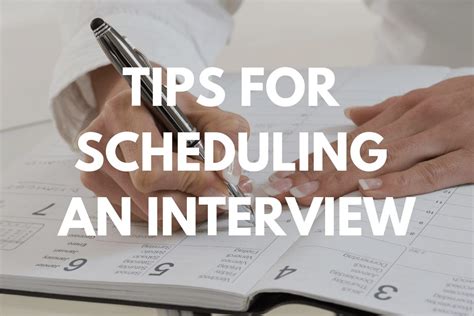Introduction
A job interview is a crucial step in the career-building process. It provides an opportunity for both the potential employer and the candidate to assess their mutual fit. Scheduling an interview efficiently can significantly enhance your chances of landing the job. This comprehensive guide will provide you with step-by-step instructions, best practices, and valuable tips to help you schedule and prepare for a successful interview.

Step 1: Contact the Hiring Manager
- Email: Send an email to the hiring manager directly. Include a clear subject line stating your interest in the position, such as “Interview Request: Software Engineer Position.”
- Phone Call: If you can’t find the hiring manager’s email address, call the company and ask to connect with them. Be polite and professional when speaking to the receptionist.
- LinkedIn: If you have a connection to the hiring manager on LinkedIn, send them a direct message expressing your interest.
Step 2: Be Flexible with Timing
- Research Company Schedule: Check the company’s website or social media pages for any upcoming events or holidays that may impact their availability.
- Avoid Peak Hours: Schedule your interview during business hours, but avoid peak rush hours like Monday mornings or Friday afternoons.
- Offer Multiple Options: Suggest several time slots that work for you and ask the hiring manager to choose one that’s convenient for them.
Step 3: Prepare for the Interview**
- Research the Company: Thoroughly research the company’s website, LinkedIn page, and industry news to gain a deep understanding of their culture, values, and business goals.
- Practice Your Answers: Anticipate common interview questions and prepare your answers in advance. Practice your delivery and ensure your responses are concise and relevant to the position.
- Dress Professionally: First impressions matter. Dress appropriately for the company culture and industry.
Step 4: Common Mistakes to Avoid
Inappropriate Communication:
- Avoid using informal language or slang in your emails or phone calls.
- Do not ask for a salary or benefits information until it’s appropriate to do so.
- Refrain from making personal or controversial statements.
Poor Preparation:
- Failing to research the company thoroughly before the interview.
- Arriving late or unprepared for the interview.
- Not taking notes or asking questions during the interview.
Step 5: Tips and Tricks
Leverage Technology:
- Use video conferencing tools like Zoom or Skype if in-person interviews are not an option.
- Utilize online scheduling platforms to streamline the process and save time.
Follow Up:
- Send a thank-you email within 24 hours of the interview.
- Reiterate your interest in the position and address any specific questions raised during the interview.
- Follow up again after a week if you haven’t heard back.
Step 6: FAQs
How long should I prepare for an interview?
The ideal preparation time varies depending on the position and company, but it’s generally recommended to spend at least 10-15 hours researching and practicing.
Can I reschedule an interview?
Yes, it’s acceptable to reschedule an interview if necessary. However, it’s important to provide as much notice as possible and offer alternative time slots.
What should I bring to an interview?
Bring a copy of your resume, a portfolio or work samples if relevant, a notepad for taking notes, and any questions you may have about the position.
Table 1: Preferred Interview Time Slots
| Day of the Week | Time of Day |
|---|---|
| Monday | 10:00 AM – 12:00 PM |
| Tuesday | 9:00 AM – 11:00 AM, 2:00 PM – 4:00 PM |
| Wednesday | 11:00 AM – 1:00 PM, 3:00 PM – 5:00 PM |
| Thursday | 10:00 AM – 12:00 PM, 2:00 PM – 4:00 PM |
| Friday | 9:00 AM – 11:00 AM |
Table 2: Interview Preparation Timeline
| Week Prior | 3 Days Before | Day Before | Hour Before |
|---|---|---|---|
| Research company website and LinkedIn | Practice common interview questions | Review answers and dress rehearsal | Proofread resume and practice elevator pitch |
Table 3: Technology Tips for Interviewing
| Tool | Benefits |
|---|---|
| Zoom | Video conferencing with screen sharing and participants controls |
| Google Meet | Collaborate with multiple participants and share documents |
| Skype | Video and audio calls with instant messaging and file sharing |
Table 4: Follow-Up Best Practices
| Within 24 Hours | After 1 Week |
|---|---|
| Send thank-you email | Politely inquire about the status of your application |
| Reiterate interest in the position | Offer additional information or references if needed |
Conclusion
Scheduling an interview can be a nerve-wracking process, but by following these steps and implementing the tips provided, you can increase your chances of securing an interview and ultimately landing your dream job. Remember to be professional, prepared, and flexible throughout the process. With careful planning and execution, you can take the first step toward a successful career path.
